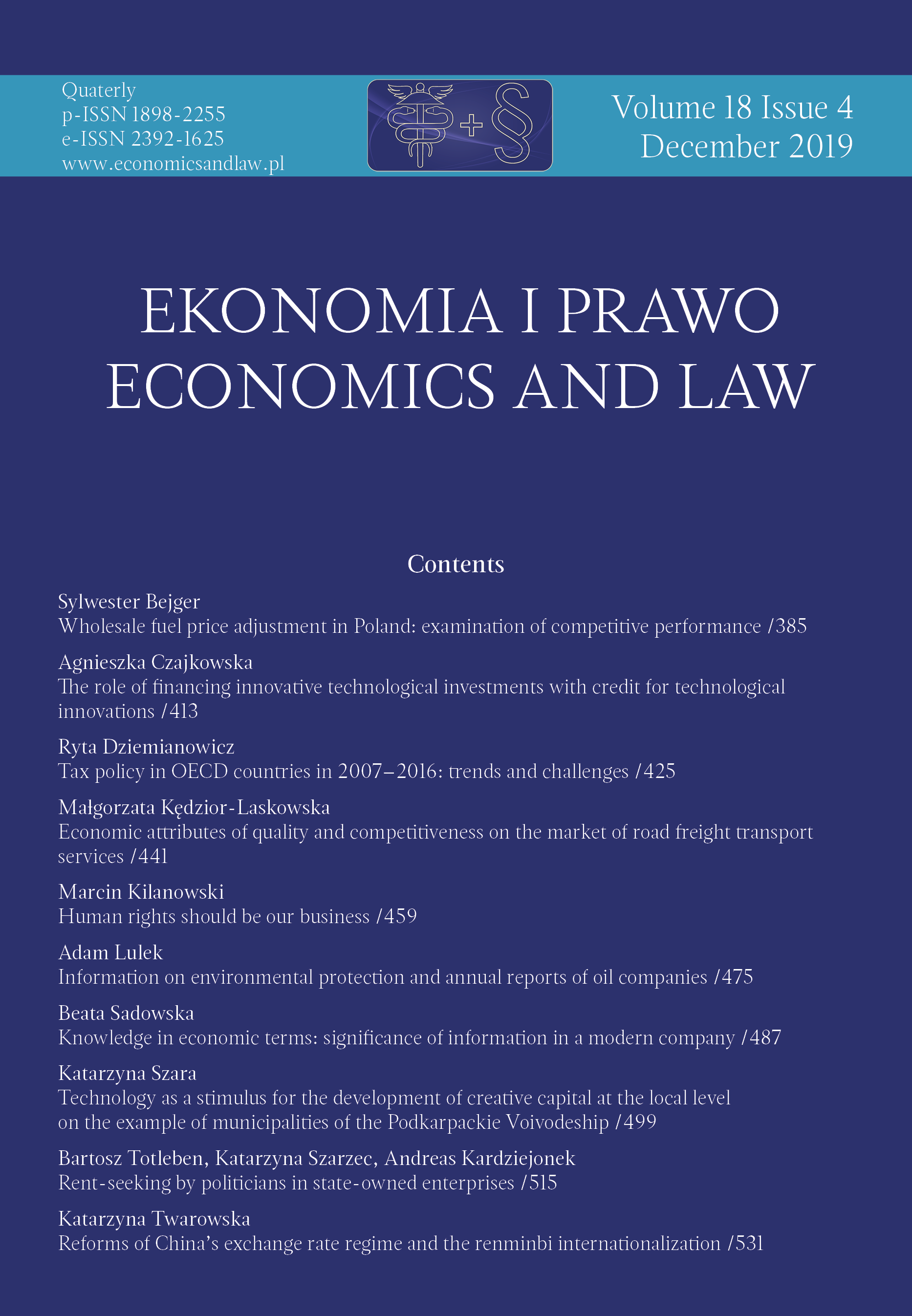Rent-seeking by politicians in state-owned enterprises
Rent-seeking by politicians in state-owned enterprises
Author(s): Bartosz Totleben, Katarzyna Szarzec, Andreas KardziejonekSubject(s): Economy, Human Resources in Economy, Socio-Economic Research
Published by: Wydawnictwo Naukowe Uniwersytetu Mikołaja Kopernika
Keywords: state-owned enterprises; rent-seeking; group of interests; rotations in management personnel
Summary/Abstract: Motivation: Notwithstanding the privatization processes, state-owned enterprises (SOEs) continue to play an important role in Poland and other post-socialist countries. Governments declare that privatization is completed and that they do not intend to sell any more enterprises. They justify this by pointing to the national security and strategic sectors in which companies should remain state-owned. Unfortunately, SOEs are used by politicians for economic and personal rent-seeking.Aim: This article aims to discuss the idea of economic rent-seeking by politicians, particularly its impact on SOEs. We claim that politicians, being a group of interest, capture SOEs in order to achieve private gains for themselves and their parties, which compromises economic performance of these companies. We analyze the mechanism of influence that politicians have on SOEs, including the processes related to rotations of managers and boards of directors after winning parliamentary elections. To illustrate this, we analyze the scale of rotations in Polish SOEs in the years 2001–2017. The rotations are presented in absolute terms. Additionally, an index of the average number of changes in a company was estimated.Results: We listed several examples of capturing SOEs by politicians. The number of SOEs in EU countries varies. Most SOEs are located in Germany and France. Among the countries of the post-socialist EU–11, Poland, Bulgaria and Romania have the most SOEs. The average number of rotations in personnel was significantly greater in SOEs than in private companies in Poland. Rotations in SOEs are positively correlated with political elections. The greatest increase in the number of changes in SOEs can be observed in the periods following parliamentary elections, regardless of which political party wins. This means that politicians treat SOEs as well-deserved spoils of victory and take it as their own.
Journal: Ekonomia i Prawo. Economics and Law
- Issue Year: 18/2019
- Issue No: 4
- Page Range: 515-529
- Page Count: 16
- Language: English

